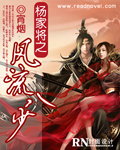CHAPTER X
您可以在百度里搜索“Now It Can Be Told 艾草文学(www.321553.xyz)”查找最新章节!
CHAPTER X
To onlookers there were some of the signs of victory on that day of September 25th—of victory and its price. I met great numbers of the lightly wounded men, mostly “Jocks,” and they were in exalted spirits because they had done well in this ordeal and had come through it, and out of it—alive. They came straggling back through the villages behind the lines to the casualty clearing—stations and ambulance-trains. Some of them had the sleeves of their tunics cut away and showed brown, brawny arms tightly bandaged and smeared with blood. Some of them were wounded in the legs and hobbled with their arms about their comrades' necks. Their kilts were torn and plastered with chalky mud. Nearly all of them had some “souvenir” of the fighting—German watches, caps, cartridges. They carried themselves with a warrior look, so hard, so lean, so clear-eyed, these young Scots of the Black Watch and Camerons and Gordons. They told tales of their own adventure in broad Scots, hard to understand, and laughed grimly at the killing they had done, though here and there a lad among them had a look of bad remembrance in his eyes, and older men spoke gravely of the scenes on the battlefield and called it “hellish.” But their pride was high. They had done what they had been asked to do. The 15th Division had proved its quality. Their old battalions, famous in history, had gained new honor.
Thousands of those lightly wounded men swarmed about a long ambulance-train standing in a field near the village of Choques. They crowded the carriages, leaned out of the windows with their bandaged heads and arms, shouting at friends they saw in the other crowds. The spirit of victory, and of lucky escape, uplifted those lads, drugged them. And now they were going home for a spell. Home to bonny Scotland, with a wound that would take some time to heal.
There were other wounded men from whom no laughter came, nor any sound. They were carried to the train on stretchers, laid down awhile on the wooden platforms, covered with blankets up to their chins—unless they uncovered themselves with convulsive movements. I saw one young Londoner so smashed about the face that only his eyes were uncovered between layers of bandages, and they were glazed with the first film of death. Another had his jaw blown clean away, so the doctor told me, and the upper half of his face was livid and discolored by explosive gases. A splendid boy of the Black Watch was but a living trunk. Both his arms and both his legs were shattered. If he lived after butcher's work of surgery he would be one of those who go about in boxes on wheels, from whom men turn their eyes away, sick with a sense of horror. There were blind boys led to the train by wounded comrades, groping, very quiet, thinking of a life of darkness ahead of them—forever in the darkness which shut in their souls. For days and weeks that followed there was always a procession of ambulances on the way to the dirty little town of Lillers, and going along the roads I used to look back at them and see the soles of muddy boots upturned below brown blankets. It was more human wreckage coming down from the salient of Loos, from the chalkpits of Hulluch and the tumbled earth of the Hohenzollern redoubt, which had been partly gained by the battle which did not succeed. Outside a square brick building, which was the Town Hall of Lillers, and for a time a casualty clearing-station, the “bad” cases were unloaded; men with chunks of steel in their lungs and bowels were vomiting great gobs of blood, men with arms and legs torn from their trunks, men without noses, and their brains throbbing through opened scalps, men without faces... Now It Can Be Told



